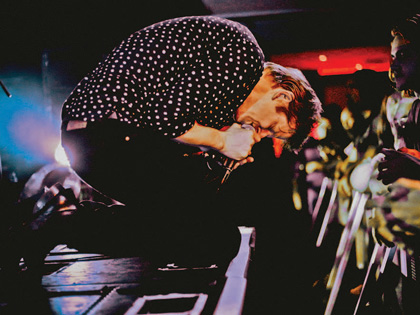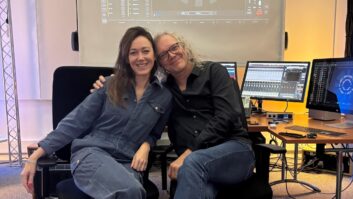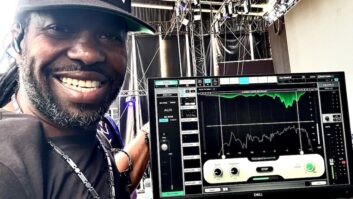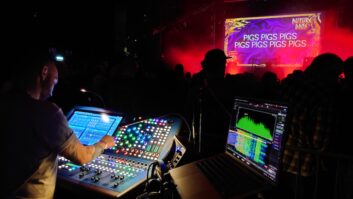
This past spring, alt-rockers Spoon added 30 dates to their tour supporting the album Hot Thoughts (Matador, 2017), hitting a wide variety of venues, from small clubs to massive festivals. When we spoke with front-of-house engineer Patrick Scott, who balances dates with Spoon, Grimes and Sleighbells, the band was in Chicago, where they’d played the Metro the previous night and were getting ready for soundcheck at Lollapalooza.
“One day it will be a benefit or a radio promo at a 300-cap club and the next it’s Lollapalooza or the Hollywood Bowl, which is where we’re going next,” Scott says. So, the tour is using house-provided loudspeakers, but Scott and monitor engineer Aaron Mendez are carrying an otherwise complete audio package provided by Clair Global: a Midas Pro 2C console for front of house and a Pro 2 for monitors, a small selection of outboard gear, as well as the bandmembers’ wedges, mics and backline.
This is Scott’s first tour with Spoon, but he’s quickly come to value the band’s chops onstage and off. “Britt [Daniel]’s lead vocal mic is an earlier model of the Sennheiser MD431,” he says. “It’s a great mic; it’s supercardioid; it sounds fantastic. Good off-axis rejection. I can’t say enough wonderful things about that mic. But with supercardioid mics, you have to be up on them, because if you’re off-axis, it doesn’t do very flattering things to the voice. Luckily, Britt has really solid mic technique, and it works perfectly for him.
“Usually, Britt or Jim [Eno, drummer] and I will spitball ideas back and forth,” Scott continues. “When I wanted to add an outboard reverb, the TC Electronic M3000, I talked about it with Jim one day. He has a studio, and he has his opinions. I wanted a good, dark and kind of syrupy reverb for this airy ballad on the new record called ‘I Ain’t the One.’ Jim said, ‘Great idea. That’s a great unit. Go for it.’
“It helps when the musicians are involved on that level, because it makes the sound better coming off the stage. Mixing a band is a lot eas- ier if I’m not fighting what’s coming off the stage; I’m enhancing it.”







